Overview
Coding challenges can be daunting for developers, often leading to inefficiencies and frustration. Kodezi OS directly addresses these issues by significantly enhancing code maintenance efficiency through automation of essential tasks such as debugging, testing, and documentation synchronization. Its proactive features minimize human error and streamline processes, allowing developers to focus more on innovation rather than routine upkeep.
The benefits of using Kodezi are clear: improved productivity and higher quality software products. By automating repetitive tasks, Kodezi empowers developers to allocate their time and energy towards creative solutions instead of mundane maintenance. Furthermore, this shift not only enhances individual performance but also contributes to the overall success of software projects.
Are you ready to transform your coding practices? Explore the tools available on the Kodezi platform and discover how they can revolutionize your approach to software development.
Introduction
In the realm of software development, developers frequently encounter a daunting array of coding challenges, especially when it comes to maintaining and optimizing codebases. Kodezi OS stands out as a revolutionary solution, specifically designed to automate and streamline this critical aspect of programming. By delving into its innovative features, developers can uncover how this operating system not only boosts productivity but also cultivates a culture of quality and continuous improvement. What truly distinguishes Kodezi OS in transforming the coding landscape amidst the myriad of available tools? Explore its capabilities to find out.
Kodezi OS: The Autonomous Solution for Continuous Codebase Maintenance
Coding challenges are a common hurdle that developers face in today's fast-paced environment. The OS serves as an independent infrastructure layer specifically designed for the continuous upkeep and development of codebases. Unlike traditional tools that primarily focus on program generation, this operating system adopts a proactive approach by automating various post-development tasks. These include:
- Automated debugging
- Performance enhancement
- Security assessments
- Architectural refactoring
Such automation ensures that your programming remains clean, compliant, and production-ready over time.
By continuously monitoring the codebase, this system addresses issues as they arise, making it an essential partner for engineering groups managing complex projects. With programmers dedicating an average of 12 hours weekly to maintenance tasks, the operating system significantly boosts team efficiency. This enables developers to concentrate on innovation instead of being weighed down by regular upkeep. Furthermore, the CLI independently enhances your repository and resolves issues prior to deployment, guaranteeing compliance with the latest security best practices and programming standards.
As Eric Schwake observes, 'the extensive use of open-source software introduces considerable security issues,' highlighting the importance of the operating system in ensuring code quality and tackling vulnerabilities. In addition, case studies illustrate the operating system's effectiveness in addressing the challenges faced by contemporary engineering teams, emphasizing its significance in the current development landscape. For those interested, a 5-minute quickstart is available, along with a kodezi os review to explore the operating system's capabilities. Why not take the next step and discover how Kodezi can transform your coding practices?
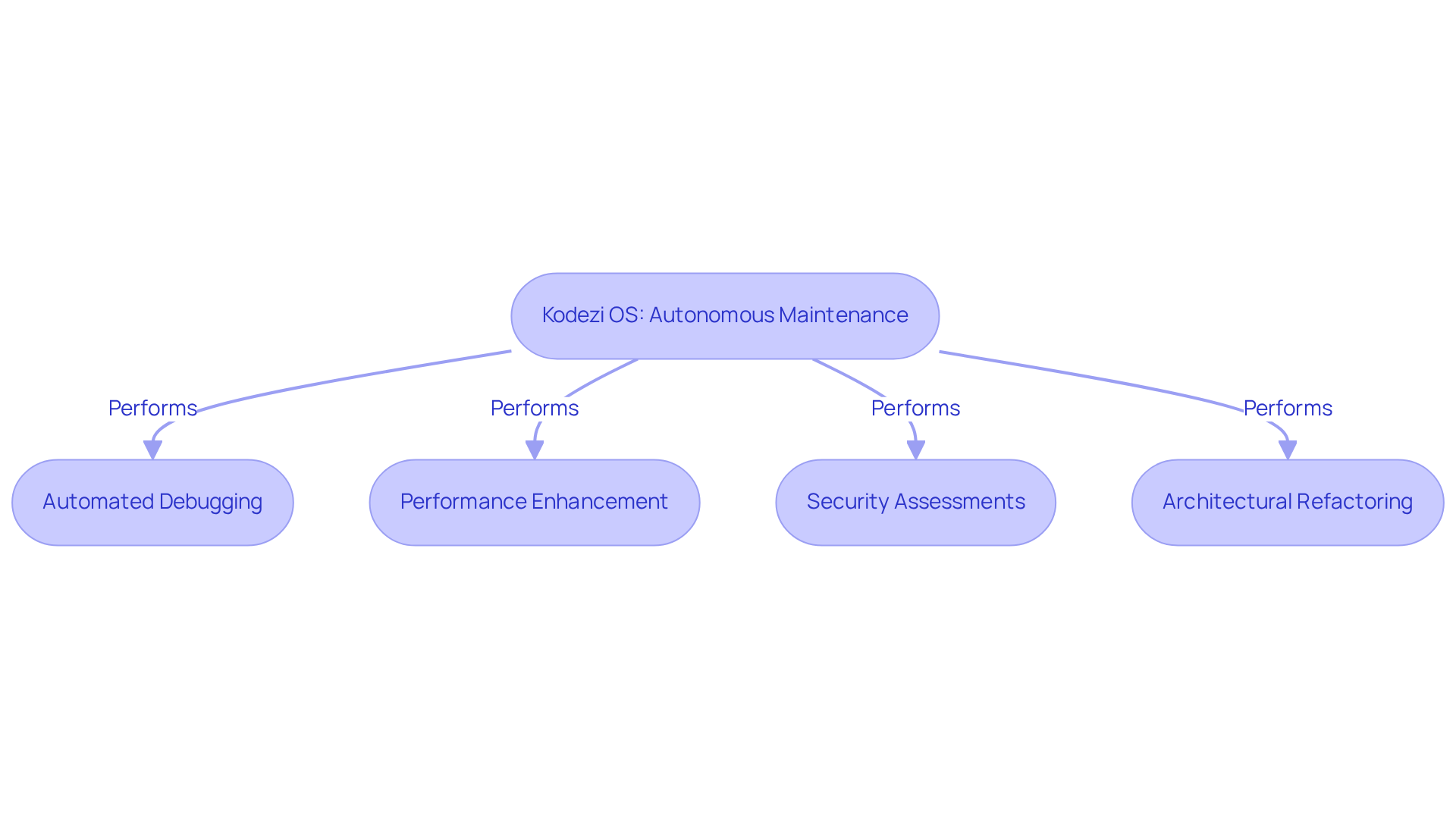
Automated Bug Healing: Kodezi OS Fixes Issues Instantly
Developers often face significant challenges when it comes to coding, particularly with debugging. How can these challenges be effectively addressed? The Kodezi OS review showcases a solution with its automated bug healing functionality, which continuously scans the codebase for flaws and irregularities. This process promptly resolves issues without requiring human intervention, significantly reducing the average time spent on debugging. In fact, automated debugging tools can decrease developers' feedback response time by up to 80%, allowing them to redirect valuable hours towards developing new features.
Companies that utilize automated bug healing tools have reported remarkable improvements in code quality and stability. By swiftly addressing bugs, the operating system minimizes the risk of human error, ensuring that the codebase remains reliable and compliant. This proactive approach not only creates a more stable development environment but also empowers engineering teams to concentrate on innovation rather than troubleshooting. The result? Higher-quality software products. Furthermore, 60% of organizations that implement test automation report significant enhancements in application quality due to early defect detection and consistent testing practices.
Isn't it time to explore the Kodezi OS review and see how it can transform your coding experience? With the integration of such tools becoming increasingly recognized as essential, the benefits are clear: improved productivity, enhanced code quality, and a focus on innovation. Check out the Kodezi OS review to discover the tools available on the Kodezi platform and elevate your development process today.
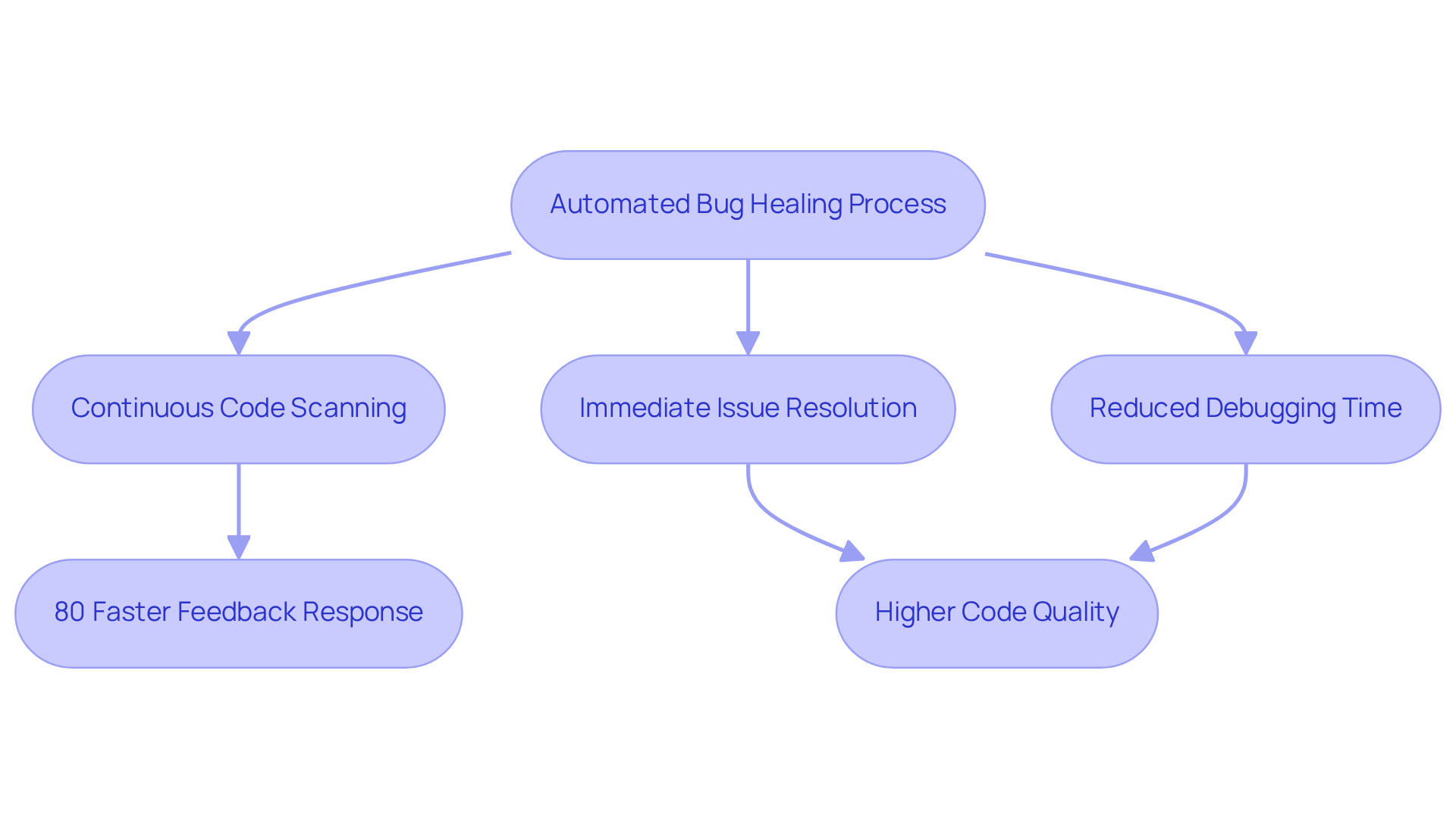
Test Healing: Kodezi OS Ensures Reliable Testing Processes
Developers often grapple with the challenges of unreliable testing processes. The Kodezi OS review reveals how Kodezi tackles these issues head-on with its advanced test healing capability, which automatically detects and rewrites failing or flaky tests. This proactive approach not only ensures that the testing suite remains reliable and effective but also significantly reduces the risk of false negatives that can waste valuable development time. By continuously updating tests to align with changes in the codebase, the Kodezi OS review process enhances the overall quality of software.
Did you know that flaky tests can consume up to 16% of a developer's time and reduce productivity by as much as 35%? Automating the test healing process is essential for maintaining efficiency. The incorporation of this feature simplifies the testing process and promotes a culture of reliability within development teams. Industry experts emphasize that maintaining a reliable test suite is crucial for successful software development, highlighting that the best tests are both reliable and resilient, focusing on stable behaviors rather than implementation specifics.
Furthermore, unreliable tests pose a significant danger to your development process, group morale, and software quality. The Kodezi OS review highlights how its integration with GitHub and CI/CD pipelines facilitates the automation of test healing, allowing teams to effectively manage their testing processes while boosting programming productivity. Explore the tools available on the Kodezi platform to elevate your coding experience and ensure a smoother development journey.
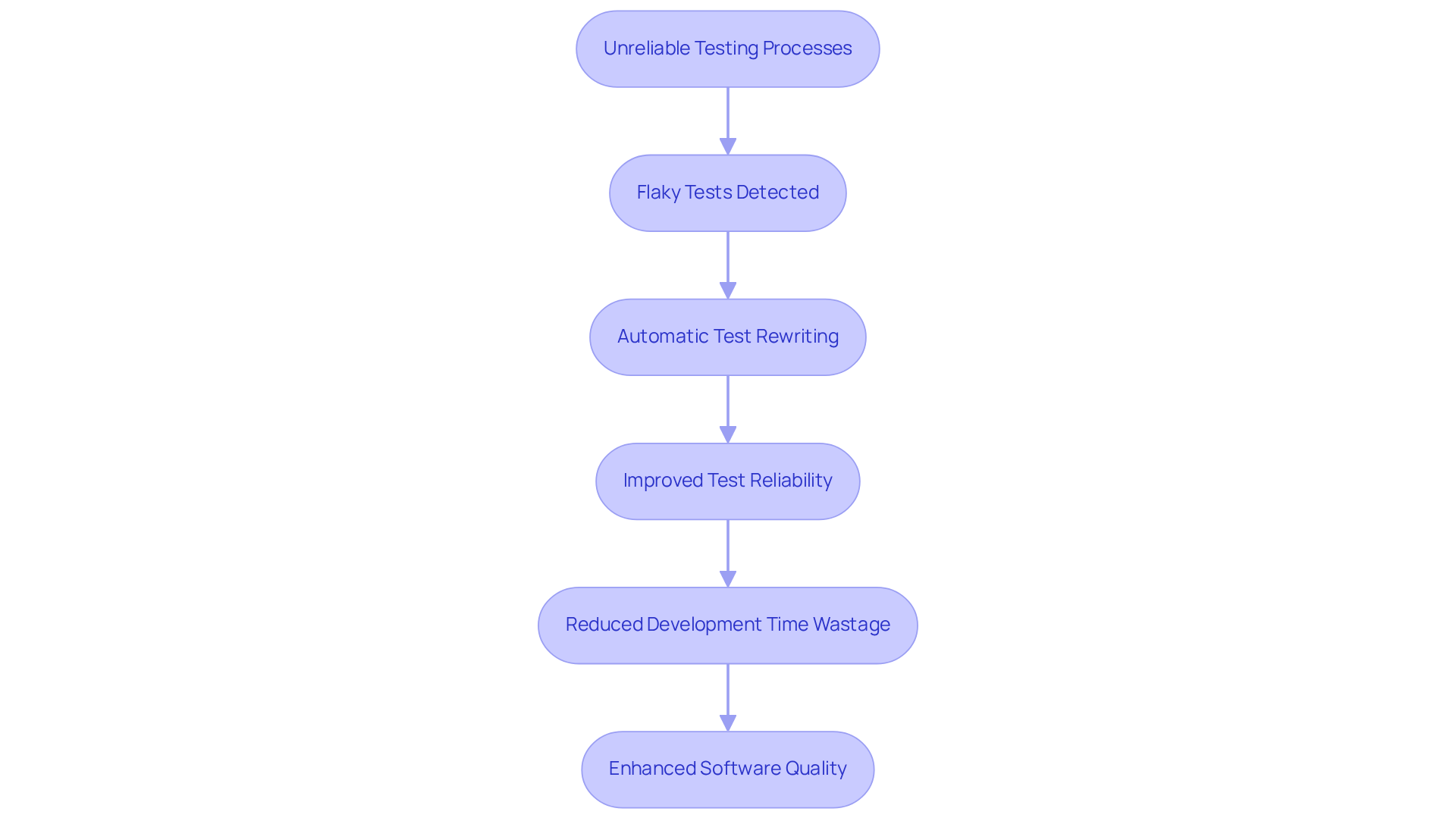
Documentation Sync: Kodezi OS Keeps Your Docs Current
Developers often face significant challenges in keeping their documentation accurate and up to date. This operating system automates documentation synchronization, ensuring that README files, changelogs, and inline documentation remain continuously current. By alleviating the manual burden on developers, who frequently struggle to maintain accuracy after code changes, it prevents the spread of outdated or misleading information.
Furthermore, by ensuring documentation stays current, the operating system enhances collaboration among team members. Precise records facilitate clearer communication and understanding, which is vital in any development project. In addition, the system generates OpenAPI specifications directly from the codebase, streamlining the documentation process. This efficient approach simplifies the onboarding of new engineers, allowing them to quickly grasp project details without relying heavily on existing team members.
Companies that leverage automated documentation updates have reported improved productivity and reduced onboarding time. These tangible benefits underscore the importance of maintaining accurate documentation in agile development environments. Similarly, the CLI serves as a flexible tool for teams, enabling them to restore codebases swiftly, thereby enhancing programming efficiency and ensuring that documentation remains synchronized with modifications.
Are you ready to explore how this operating system can transform your coding practices? Discover the tools available on the platform to elevate your development experience.
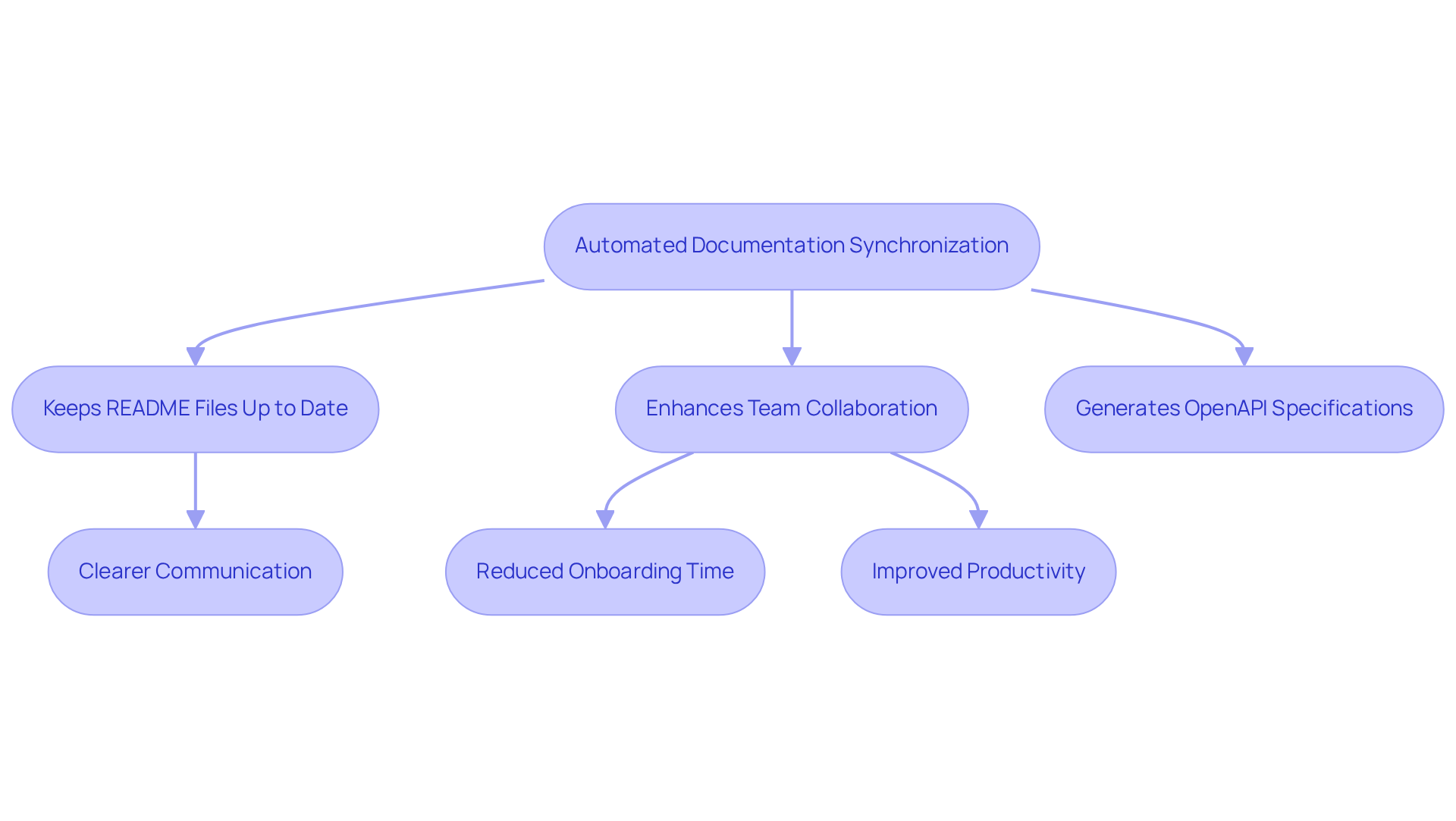
Entropy Detection: Kodezi OS Identifies Code Complexity Risks
In today's fast-paced development environment, coding challenges are a common hurdle that developers encounter. According to the kodezi os review, it employs entropy detection to pinpoint areas of programming complexity and potential risks within the system. By identifying these risk zones, engineering teams can proactively refactor and streamline their programming, effectively preventing the buildup of technical debt. This capability is especially crucial in large codebases, where complexity can escalate unnoticed, leading to significant maintenance challenges.
Furthermore, companies that leverage this feature can enhance their code quality and maintainability. Imagine being able to ensure smoother development processes while simultaneously reducing long-term costs associated with managing complex systems. The kodezi os review highlights how Kodezi not only addresses the pain points of coding complexity but also empowers teams to improve their overall productivity and code quality.
In addition, by utilizing Kodezi's tools, developers can experience significant efficiency gains. Are you ready to explore how Kodezi can transform your coding practices? Dive into the platform and discover the tools available to elevate your development experience.
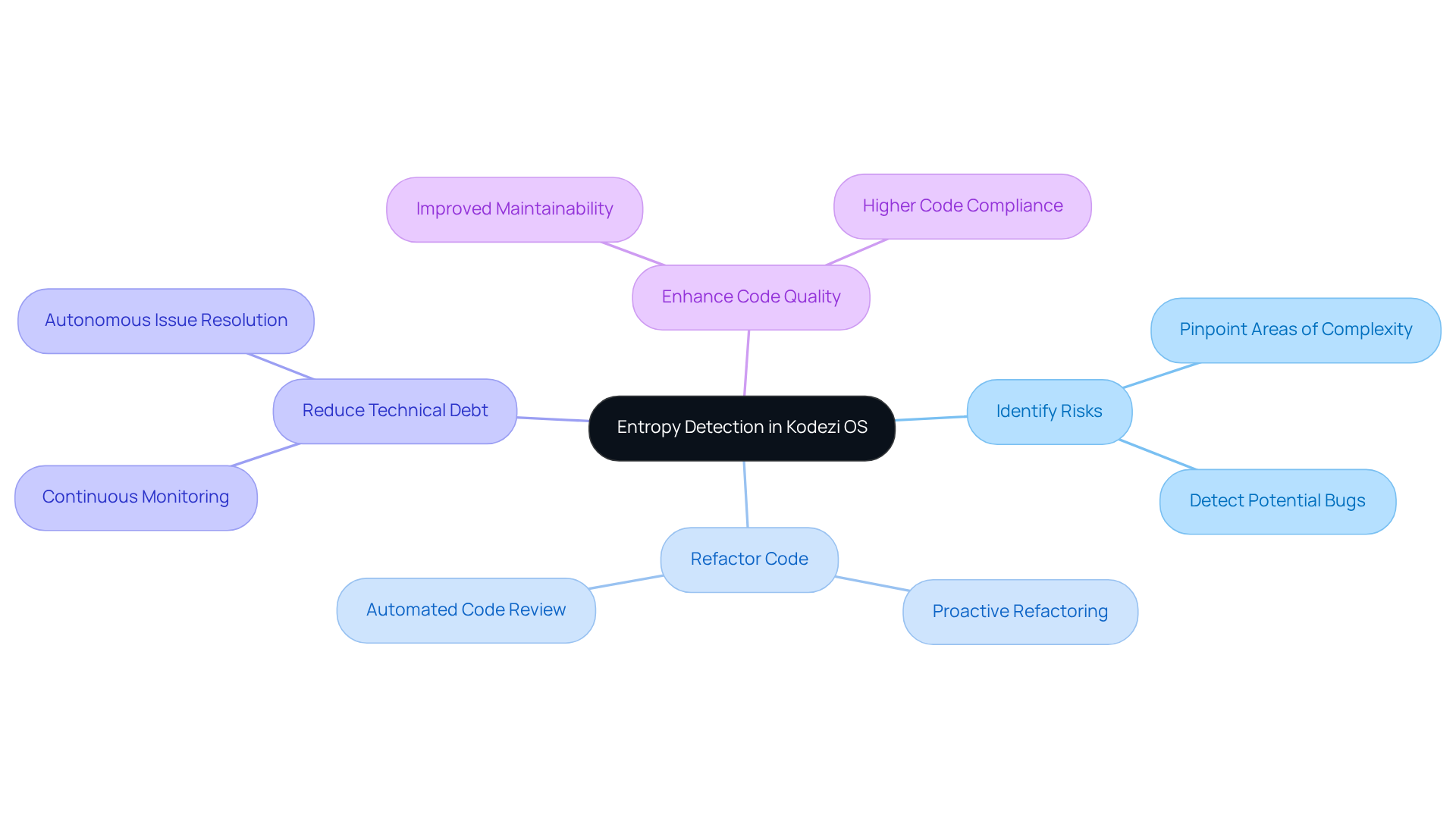
Security & Standards: Kodezi OS Safeguards Your Codebase
Security is paramount for developers facing numerous coding challenges. This operating system actively identifies vulnerabilities and enforces coding standards throughout the entire codebase. By utilizing the CLI, teams can independently enhance their codebases, resolve bugs, tackle performance issues, and incorporate exception handling prior to production. This proactive approach greatly reduces the risk of breaches or exploits.
Consider this: 86% of codebases harbor open source vulnerabilities, with 81% classified as high or critical risk. The operating system implements automated security checks to address these vulnerabilities, ensuring that the codebase remains safe and reliable. This allows developers to concentrate on innovation without compromising safety.
Furthermore, with 91% of codebases containing outdated components, this operating system encourages proactive security practices that are crucial in today's swiftly changing software environment. As Mike McGuire notes, 'Blind spots are prevalent when it comes to open source dependency management,' emphasizing the significance of the OS's vigilant approach. By concentrating on code quality and compliance requirements, the CLI empowers teams to follow best practices, improving overall code quality.
In addition, how can developers ensure their code remains secure and efficient? By leveraging the tools offered by this operating system, teams can not only enhance their coding standards but also foster an environment of continuous improvement. Explore the tools available on the platform to elevate your coding practices today.
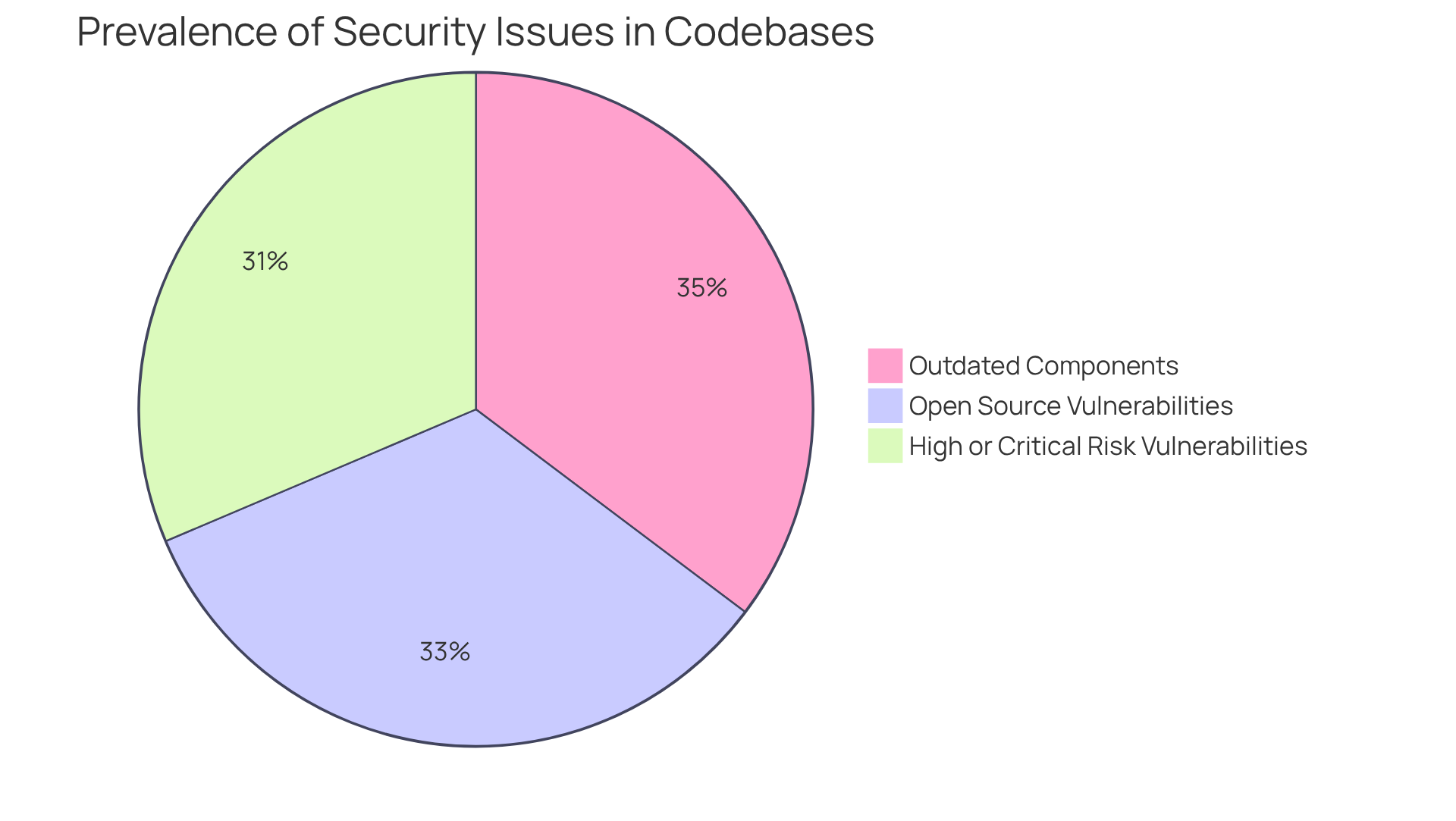
Seamless Integration: Kodezi OS Works with GitHub and CI/CD Pipelines
Developers often encounter significant challenges in managing their coding workflows. The operating system offers a solution by providing seamless integration with GitHub, CI/CD pipelines, and observability platforms. This integration allows it to autonomously orchestrate upgrades, fix bugs, and generate pull requests. Such capabilities enable the OS to function smoothly within existing workflows, ensuring that interruptions are minimized and overall efficiency in the development process is greatly enhanced.
Furthermore, by automating routine maintenance tasks—like quick issue resolution, performance enhancement, and ensuring security compliance—teams can redirect their focus toward higher-level strategic initiatives. This shift not only improves productivity but also fosters innovation within the organization. The CLI enhances this process further, autonomously improving software quality and addressing issues before they reach production. This makes it an invaluable tool for B2B engineering teams.
In addition, consider the impact of these features on your coding practices. By leveraging the OS's capabilities, teams can achieve a higher standard of code quality and efficiency. Why not explore the tools available on the platform to see how they can transform your development processes? With these advancements, the potential for enhanced productivity and innovation is within reach.
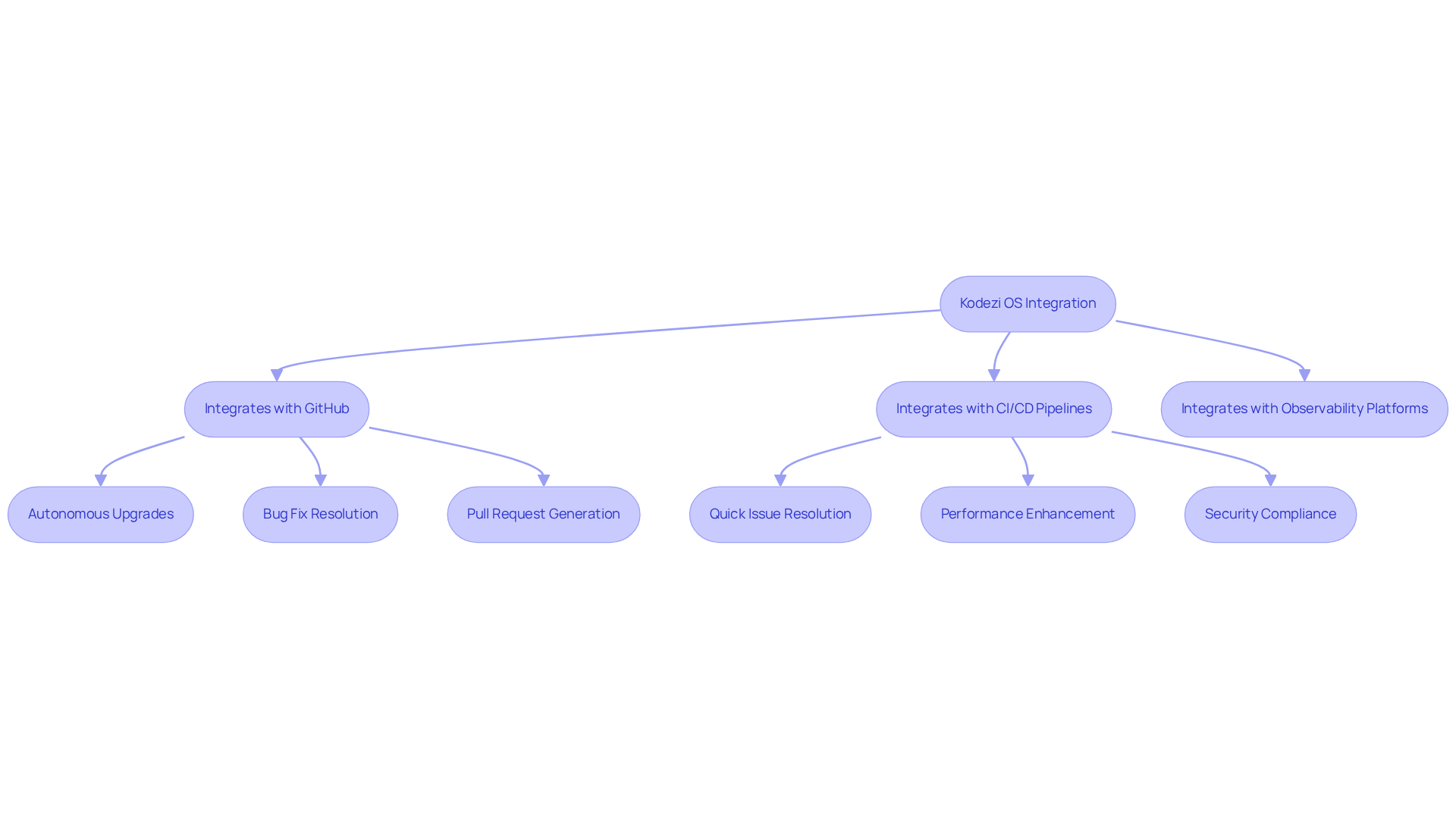
Self-Healing Infrastructure: Kodezi OS Builds Long-Term Codebase Health
Coding challenges are a common hurdle for developers. The self-repairing infrastructure of the operating system is designed to incorporate long-term maintainability into your codebase. By consistently observing and independently resolving problems as they occur, the OS guarantees that the code remains robust and adaptable over time. Furthermore, the CLI plays a vital role in this process by detecting and resolving codebase issues before they reach production, enhancing performance and ensuring adherence to the latest security best practices and coding standards.
This proactive strategy alleviates pressure on developers and fosters a culture of quality and accountability within the team. As a result, you can expect more robust software products. In addition, using this self-repairing infrastructure not only improves productivity but also elevates code quality, making it an essential tool for modern development practices. Explore the tools available on the platform to experience these benefits firsthand.
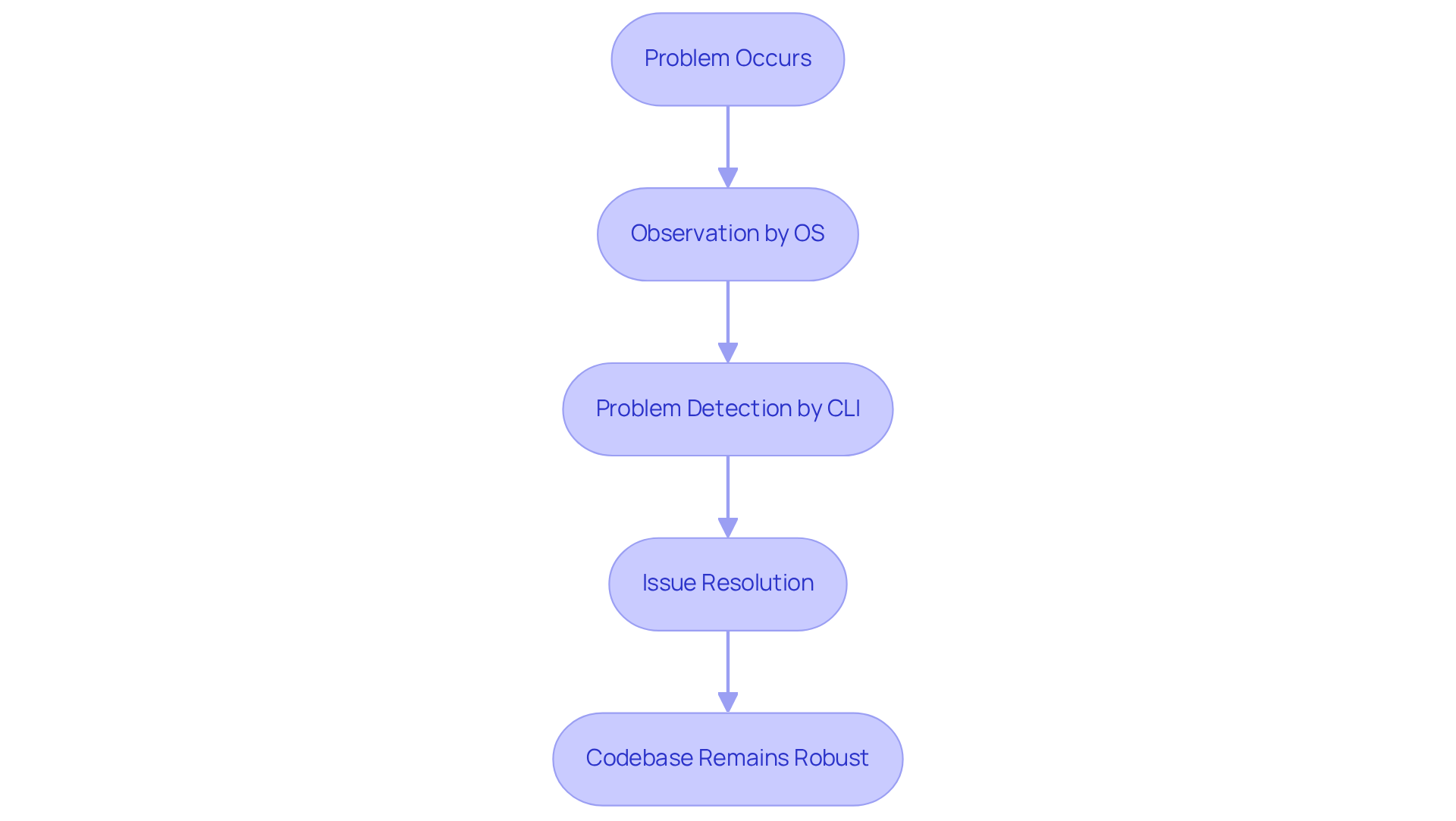
Language & Framework Translation: Kodezi OS Adapts to Your Tech Stack
Coding can be a challenging endeavor, especially when developers grapple with language barriers and framework limitations. How can these obstacles be overcome? The operating system offers outstanding language and framework translation features, facilitating the effortless transformation of scripts across various stacks. This capability is particularly beneficial for teams that utilize multiple programming languages or frequently shift between frameworks. By enabling this flexibility, the OS enhances code quality and empowers teams to leverage the finest tools for their projects without being constrained by language differences.
Furthermore, the CLI tool significantly boosts productivity by allowing teams to automatically restore codebases in seconds. Imagine reducing the time spent on pull requests and focusing more on what truly matters—writing exceptional code. By adopting this system, developers can experience improved productivity and efficiency, ultimately leading to higher quality outcomes. Why not explore the tools available on this platform and see how they can transform your coding experience?
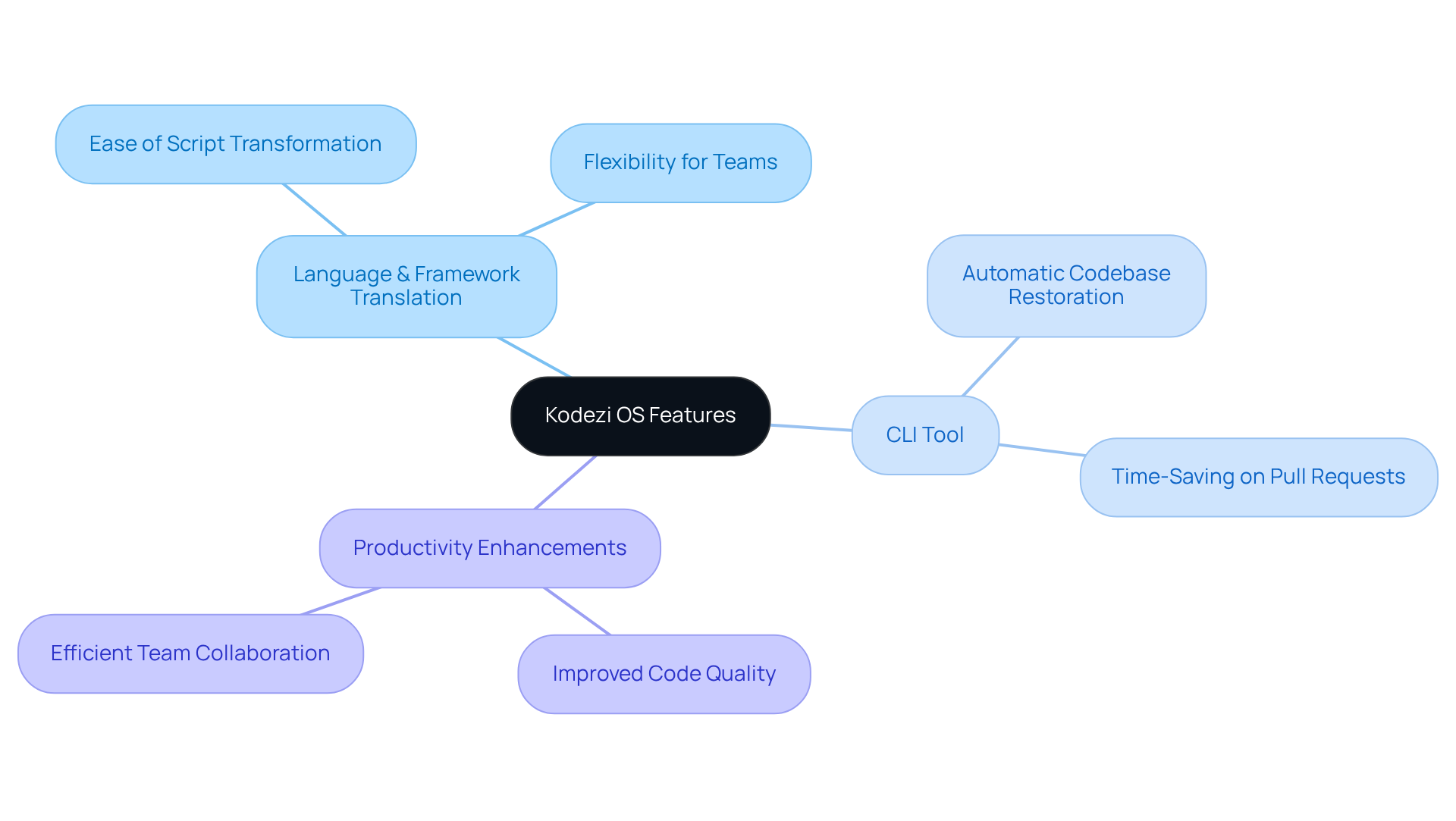
Explore Kodezi OS: Sign Up for Free Trials and Demos
Developers often face significant challenges in maintaining and optimizing their code. To tackle these issues, Kodezi provides a compelling solution, as highlighted in the Kodezi OS review, with its innovative operating system. By utilizing free trials and demonstrations, engineering groups can interact directly with the platform, witnessing firsthand how the Kodezi OS review can transform their code maintenance practices and enhance overall efficiency. Notably, 30-day free trials have shown a remarkable conversion rate of 56%, underscoring the effectiveness of extended hands-on experiences in driving software adoption. This hands-on engagement allows teams to make well-informed decisions about seamlessly integrating the Kodezi OS review into their development workflows. Explore the tools available on the platform and experience the benefits of improved productivity and code quality firsthand.
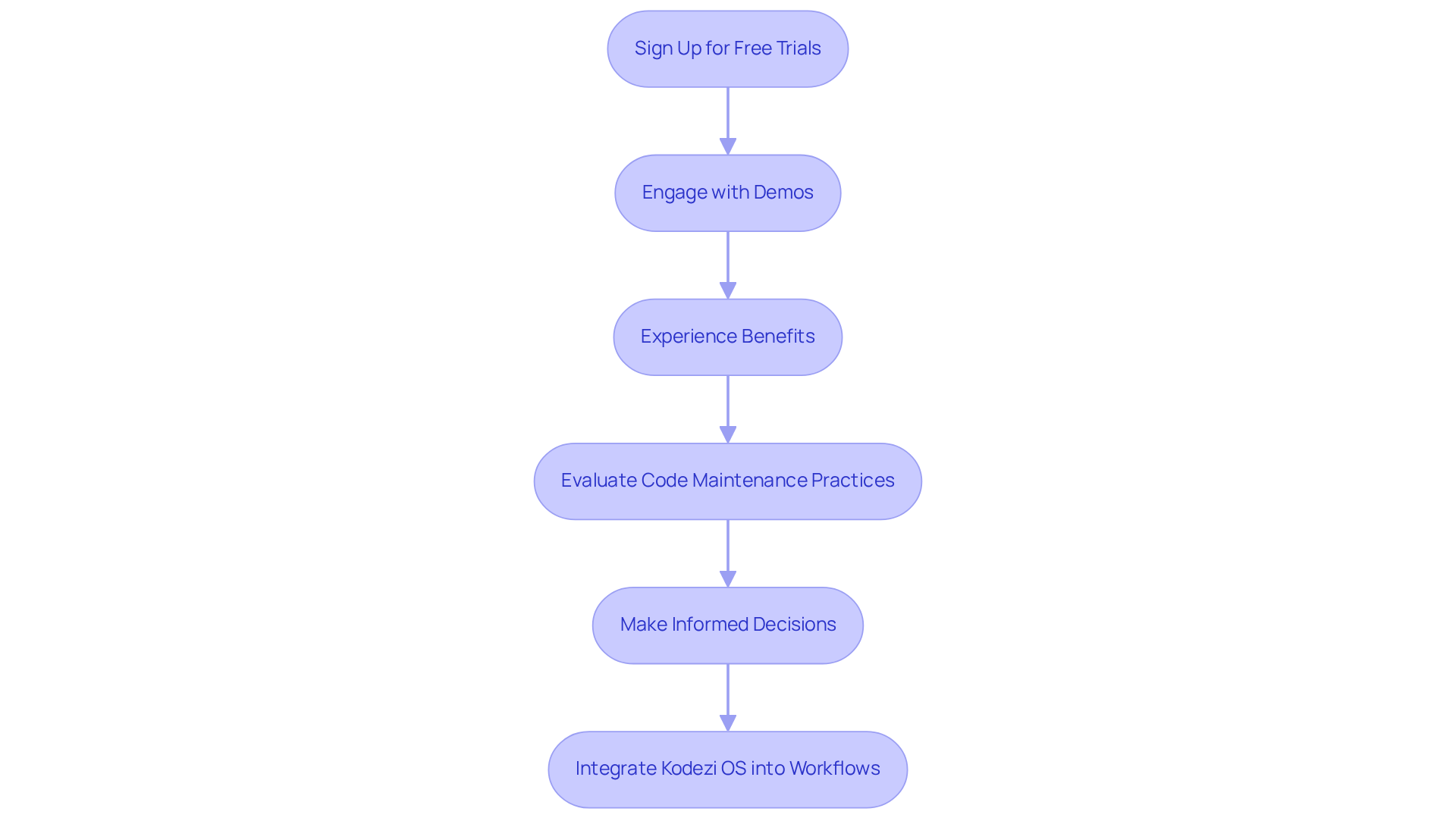
Conclusion
In a world where coding challenges are ever-present, developers often find themselves grappling with the relentless demands of code maintenance. The Kodezi OS emerges as a transformative solution, automating critical processes such as debugging, testing, and documentation synchronization. This operating system allows teams to redirect their focus toward innovation rather than getting bogged down by routine upkeep.
Furthermore, the multifaceted benefits of Kodezi OS are evident. From automated bug fixing and test healing to entropy detection and seamless integration with existing workflows, each feature contributes to a more efficient development process. The operating system’s emphasis on security and standards further reinforces its significance in safeguarding codebases against vulnerabilities, making it an essential tool for modern software development.
In addition, the potential for improved productivity, enhanced code quality, and streamlined workflows is within reach for developers who embrace tools like Kodezi OS. Engaging with Kodezi through free trials and demos presents an opportunity to experience firsthand the advantages of this innovative operating system. By doing so, developers can pave the way for a more efficient and resilient coding future.
Frequently Asked Questions
What is Kodezi OS?
Kodezi OS is an autonomous operating system designed for continuous codebase maintenance, automating various post-development tasks such as debugging, performance enhancement, security assessments, and architectural refactoring.
How does Kodezi OS improve developer efficiency?
By automating maintenance tasks, Kodezi OS allows developers to focus on innovation rather than regular upkeep, significantly boosting team efficiency. It addresses issues in the codebase as they arise, reducing the time programmers spend on maintenance.
What are the key features of Kodezi OS?
Key features of Kodezi OS include automated debugging, performance enhancement, security assessments, architectural refactoring, and automated bug healing.
How does automated bug healing work in Kodezi OS?
Automated bug healing in Kodezi OS continuously scans the codebase for flaws and resolves issues without human intervention, reducing the average time spent on debugging and allowing developers to focus on new feature development.
What impact does automated bug healing have on code quality?
Companies using automated bug healing tools report improvements in code quality and stability by swiftly addressing bugs, minimizing human error, and ensuring the codebase remains reliable and compliant.
What is test healing in Kodezi OS?
Test healing in Kodezi OS automatically detects and rewrites failing or flaky tests to ensure a reliable testing suite, reducing the risk of false negatives and maintaining efficiency in the development process.
How does Kodezi OS integrate with existing development tools?
Kodezi OS integrates with GitHub and CI/CD pipelines to facilitate the automation of test healing and other processes, enhancing the overall development workflow.
What benefits do organizations experience by implementing Kodezi OS?
Organizations implementing Kodezi OS experience improved productivity, enhanced code quality, and a greater focus on innovation due to automated maintenance and testing processes.
Is there a quick way to get started with Kodezi OS?
Yes, a 5-minute quickstart guide is available for those interested in exploring the capabilities of Kodezi OS.




